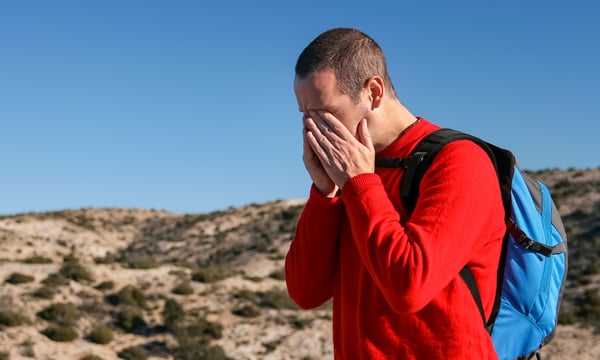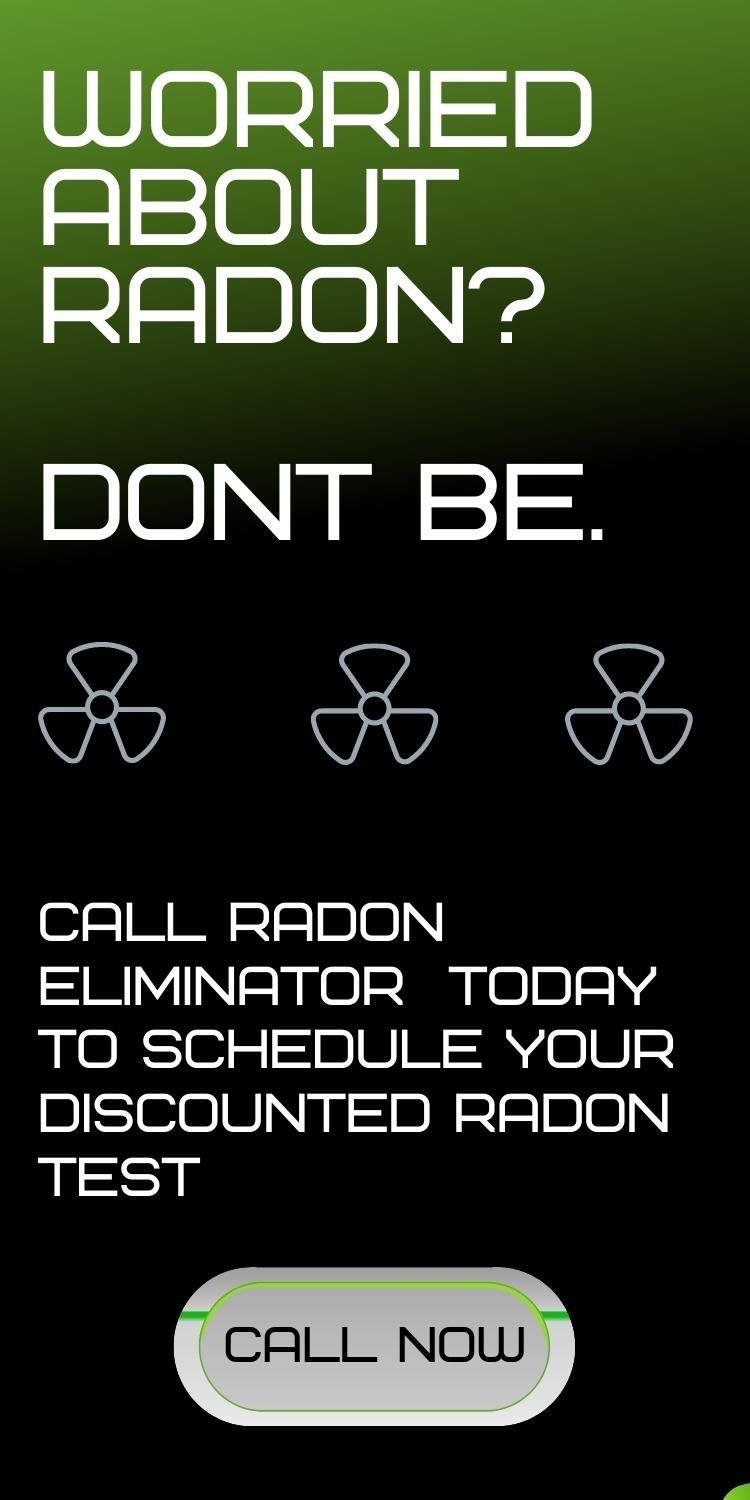Did you know that lung cancer is the second most common type of cancer in adults in the United States?
It is also the leading cause of death from cancer.
Treatment for lung cancer is much more effective when the disease is caught in its earlier stages.
Unfortunately, though, most people with lung cancer do not experience symptoms until the disease has spread.
Some people do experience subtle symptoms of early-stage lung cancer, but these symptoms more often stem from other health issues or factors such as smoking.
Most people know that smoking is the leading cause of lung cancer deaths in the United States.
Many people have no idea that the second leading cause of lung cancer is due to exposure to radon gas.
Long term exposure to elevated levels of radon gas in your home will put you and your family at risk for lung cancer.
In the article below, we describe early symptoms of lung cancer, when to see a doctor, and testing your home for radon.
Radon is dangerous. Read our blog post "Radon is Deadlier Than What?" to learn more.
Table of Contents
- Sudden Weight Loss
- Shortness of Breath
- Cough
- Fatigue
- Shoulder, Chest, or Back Pain
- When To See A Doctor
- Summary
- Test Your Home For Radon
Sudden Weight Loss
The American Society of Clinical Oncology reports that weight loss is often the first noticeable sign of cancer.
It is estimated that 40% of people who receive a cancer diagnosis have experienced unexplained weight loss during that time.
Cancer can cause weight loss for many reasons, including:
- changes to immune function
- changes to metabolism
- changes to hormones
- a sudden loss of appetite
- difficulty swallowing

Shortness of Breath
Shortness of breath and wheezing is also a common early symptom of lung cancer.
Some people may experience a slight cough in addition to their shortness of breath.
Others may have difficulty catching their breath but have no cough.
Cough
A slight cough that does not go away can be an indicator of early stage lung cancer.
Some people assume that this cough is only a result of smoking and ignore it completely.
A person who regularly coughs because of another lung condition may notice changes in their cough.
Those changes can likewise indicate lung cancer.
Also, a cough that produces blood may result from lung cancer or another issue with the lungs.
Anyone who experiences this symptom should see a doctor as soon as possible.
Fatigue
Lung cancer can cause the number of red blood cells in the body to drop. The medical term for this issue is anemia.
Because red blood cells carry oxygen, a person with anemia may not take in enough oxygen to support their body's needs.
This can often result in tiredness and fatigue.
Anyone that has suffered from severe fatigue knows how difficult it can be to function on a day-to-day level.
Shoulder, Chest, or Back Pain
Most people with lung cancer do not feel pain or other symptoms during the early stages.
They don't feel any pain because there are very few nerve endings in the lungs to produce pain.
However, pain can occur when lung cancer invades the chest wall, ribs, vertebrae, or certain nerves.
Pancoast tumors, for example, which form at the very top of the lungs, often invade nearby tissues, causing shoulder pain.
As lung cancer progresses and a tumor develops, a person may begin to feel pain in their:
- arms
- chest
- back
When To See a Doctor
Make an appointment with your doctor if you have any of the symptoms above or any other persistent signs or symptoms that worry you.
If you smoke and have been unable to quit, make an appointment with your doctor.
Your doctor can recommend strategies for quitting smoking, such as counseling, medications, and nicotine replacement products.
If you've lived in a home for many years that has recently tested positive for elevated levels of radon, you should speak to your doctor right away as well.
Summary
Lung cancer is the second most common form of cancer.
It can affect absolutely anyone but is particularly prevalent among people who smoke or have been exposed to elevated levels of radon.
Lung cancer is best treated in the early stages.
However, lung cancer typically does not cause symptoms until it has spread.
As a result, it is not always possible to detect lung cancer in its earliest stages.
Even still, some people experience subtle symptoms during the initial stages.
It is essential to recognize these so your team of doctors can start treating your lung cancer right away.
Anyone who experiences early symptoms of lung cancer should see a doctor.
Thankfully, in many cases, something other than cancer is the cause.
It's still best to seek medical advice as a precaution.
When dealing with something like lung cancer, it is always better to be safe than sorry.
For more information read our blog post: "What are the Symptoms of Radon Poisoning."

Test Your Home for Radon
Before you have to worry about any radon lung cancer symptoms, you should have your home tested for radon.
Testing is inexpensive and straightforward and is quickly done by a professional mitigation company.
Testing is necessary because radon is odorless and invisible.
Please have your home tested for radon and don't take chances with the health and well-being of you and your family.
Contact Radon Eliminator today to get your home tested for radon.
If Radon Eliminator does find elevated levels of radon in your home, they can get started on a mitigation system to lower your levels right away.
Click the button below to get started.





